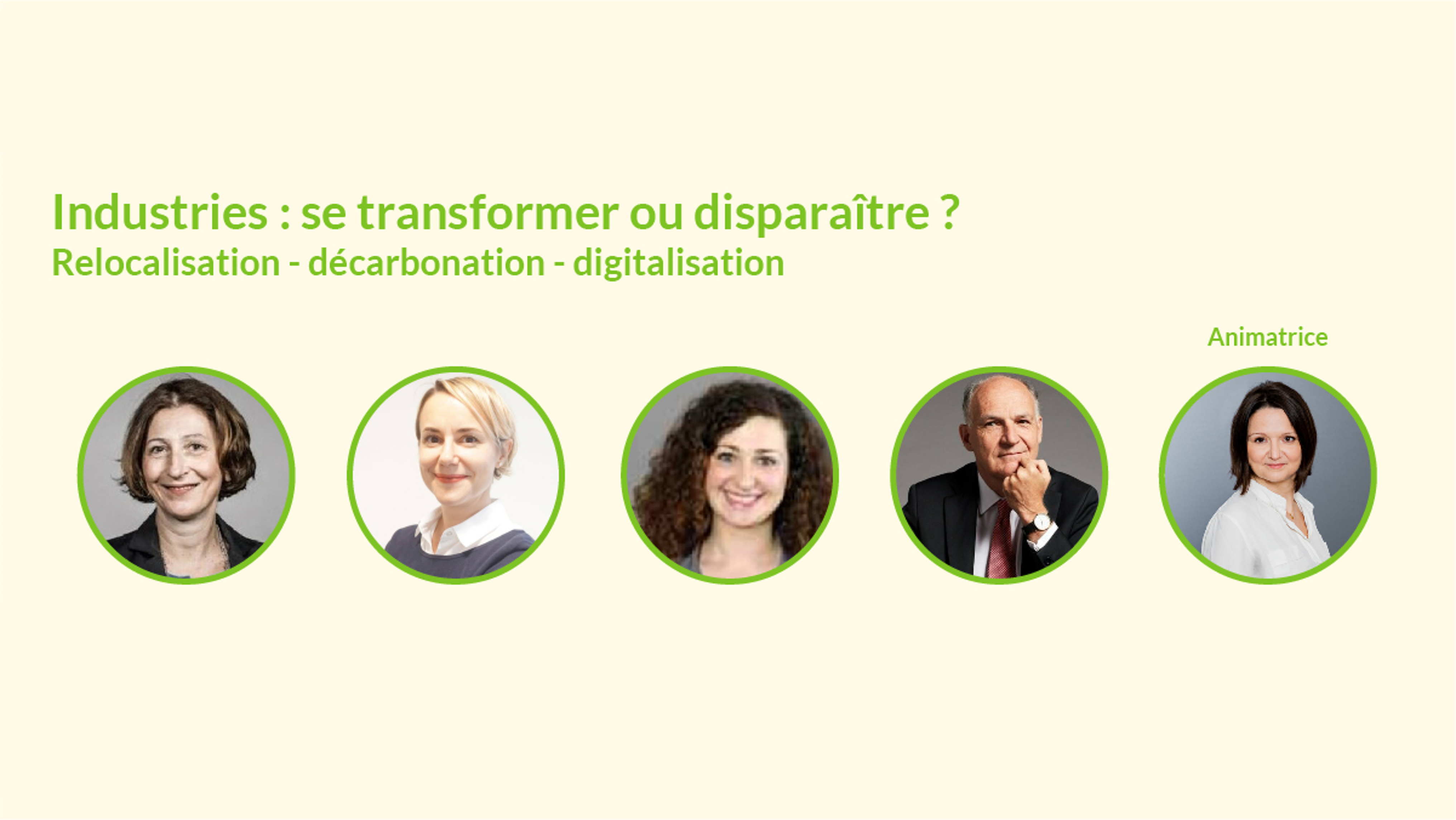
PRODURABLE trade show – Industry: transform or disappear? Relocation, decarbonization, digitalization
The French industrial sector, a source of employment and a rich ecosystem of subcontractors, is a catalyst for innovation. The competitiveness of this sector, however, depends on its ability to adapt and transform, to keep up with competitors able to react swiftly in this current time of constant changes in the market.
A round table discussion that took place during the PRODURABLE meetings on September 14, 2022 focused on three major factors driving the transformation of the industrial sector: the relocation of production sites, decarbonization, and the digitalization of processes in the industry.
Alongside Nathalie Wright, Chief Digital, IT & Sustainability Officer at Rexel, other industry leaders took part in this discussion, including Marie Georges, Sustainability Lead for Accenture France and Benelux, Pierre-André de Chalendar, Co-Chair of La Fabrique de l’Industrie and Chairman & CEO of Saint-Gobain, and Maud Tarnot, Head of CSR France for the Holcim Group.
The main objective: decarbonization
Lowering carbon intensity is the greatest challenge of the decade facing the industry. Decarbonization requires innovative industrial processes and, as such, is a major driver of increased productivity and lower production costs. It also entails improved energy efficiency and an energy mix that gives greater prevalence to electricity. The means used to produce electricity must be low-carbon – and low-cost – in order to maintain industrial competitiveness.
In the short term, without a sufficiently abundant source of low-carbon energy, the main focus of action is to improve the energy efficiency of production sites. It is also necessary to address “Scope 3” emissions up and down the value chain, involving suppliers, customers, and ultimately end-users, who need guidance to encourage eco-responsible purchasing. Targets for net-zero greenhouse gas (GHG) emissions are also indicative of a desire by many companies to aim for carbon neutrality in the medium term by incorporating all stakeholders in their approach. To this end, support from public authorities is vital, whether it involves implementing new regulations, financial incentives, or labels recognizing positive actions.
The responsibility of a distributor like Rexel for its customers and suppliers
“A company like Rexel is particularly well-positioned to take part in this new kind of industrial revolution”, says Nathalie Wright. Rexel provides the necessary equipment for energy transition across the entire value chain. “That’s why we are encouraging our suppliers to design products that are best suited for the energy transition, manufactured according to rigorous standards in line with our ‘Responsible Supplier Charter’, enabling [suppliers to take] rapid action in terms of their own Scope 3 emissions”, adds Nathalie Wright.
As a distributor with a nationwide presence, Rexel also has an important role to play. The Group strives to raise awareness on climate issues among industrial customers as well as self-employed electricians, advocates eco-friendly behaviors, and provides “zero-carbon” services to help reduce their environmental impact. This is a fundamental point in companies’ energy sobriety and decarbonization strategies.
Digital technology for eco-responsibility
The growing connectivity of solutions is also set to optimize the use of existing electrical products and therefore improve their energy efficiency, as well as provide real-time information to calculate their environmental impact. For Nathalie Wright, “this is the main objective of Rexel’s Carbon Tracker, using a methodology approved by Bureau Veritas, which gives customers the information they need to switch to more eco-responsible products”.
For to the round table participants, companies that are further ahead in terms of cloud and data technology will lead the way in decarbonization. The availability of figures showing the environmental impact of products, and also user behavior, will effectively make for improvements in product offerings. With digitalization becoming well-established in product sales, there is still progress to be made on the product manufacturing side, and therefore a need to develop the process further. Moving forward, industrial players should therefore continue to invest in this area, while incorporating ESG issues into the digital transition.
Location and reindustrialization for the benefit of the environment
Industrial players certainly benefit from having their production facilities located as close as possible to their suppliers and customers. Proximity serves to shorten and simplify the supply chain, which, in addition to being more agile, will also be less exposed to third parties, logistical incidents, and fluctuating transport costs, as well as result in a reduced environmental impact. What is true in the industry is equally relevant in other sectors, including distribution. There is a need to think locally: “For Rexel, innovation plays a role for distribution branches in optimizing stocks and promoting a circular economy with all local economic players and community stakeholders”, emphasizes Nathalie Wright.

